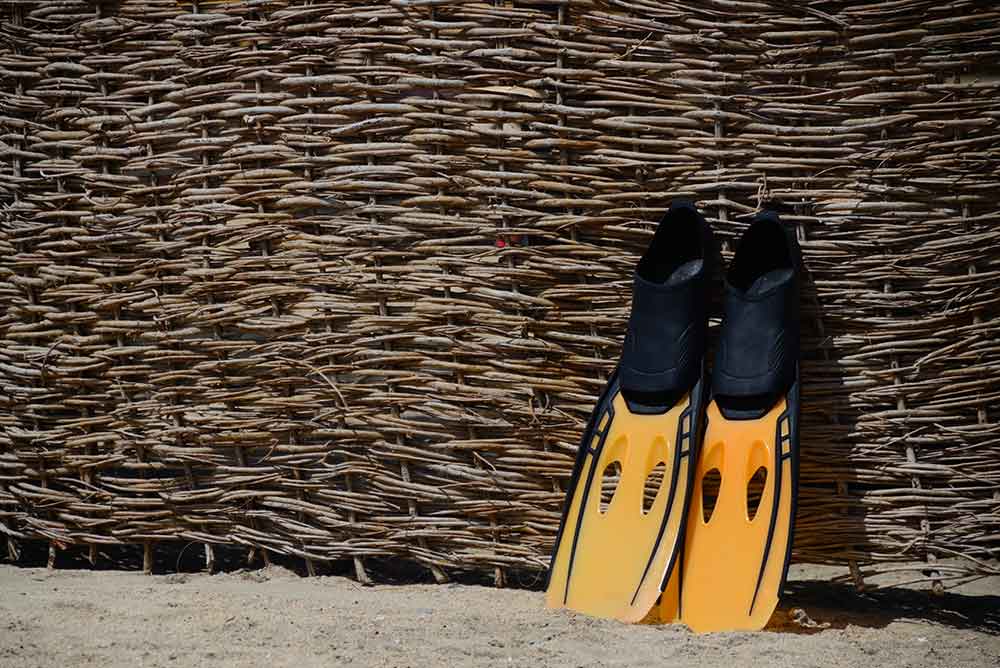
Top Scuba Diving Gear for Cozumel: Essential Equipment for Every Dive
Scuba divers planning a trip to Cozumel or looking to update their setup need reliable, location-appropriate equipment. Whether new to diving, a frequent traveler, or a local diver, using the right gear is critical for underwater comfort, performance, and safety. This page overviews the top scuba diving gear, including must-have essentials, specialized equipment for local conditions, and travel-friendly diving gear. The information shared here is for general educational purposes and is not intended as professional advice or endorsement of any specific product or brand.
Essential Scuba Diving Equipment for Every Diver
Every diver, regardless of experience level, should start with a core set of equipment. These items form the foundation of a safe and efficient dive setup. Choosing well-fitting, high-quality gear supports better performance and reduces potential risks.
Dive Masks and Snorkels: Clarity and Comfort Underwater
An adequately fitted dive mask is essential for visibility. Most divers choose masks with tempered glass and a silicone skirt to create a tight seal. Low-volume masks are easier to clear and more suited to freediving and scuba diving in confined spaces. A dry-top snorkel is recommended for surface swimming, especially when diving from shore or boats.
Fins and Booties: Maximize Propulsion
Fins should match the diving environment. Open-heel fins paired with neoprene booties are ideal for most scuba divers, providing versatility and protection. Full-foot fins may be more suited for warm, calm water but offer less protection during shore entries. Adjustable straps are preferred for easy fitting and secure placement.
Buoyancy Control Devices (BCDs): Balanced Diving
A BCD helps maintain neutral buoyancy throughout the dive. Beginners commonly use jacket-style BCDs, while back-inflate models offer more streamlined movement for experienced divers. Key features include lift capacity, weight integration, and compatibility with other scuba equipment.
Regulators and Octopus Systems: Reliable Airflow
The regulator delivers air from the tank to the diver. A standard setup includes a first stage, a primary second stage, an alternate air source (octopus), and a submersible pressure gauge. Based on tank compatibility, divers should choose between DIN or yoke fittings. Cold-water divers may prefer sealed, balanced first stages to prevent freezing.
Dive Computers and Gauges: Track Your Safety
A dive computer provides real-time information on depth, dive time, and no-decompression limits. Entry-level models cover basic needs, while advanced computers support gas switching and decompression tracking. Analog gauges can serve as backups, ensuring divers can constantly monitor air supply and depth.
Specialized Scuba Gear for Cozumel's Unique Diving Conditions
Cozumel’s dive sites include drift dives, deep walls, and coral reefs. Selecting the right scuba gear for these conditions helps divers manage current, depth, and exposure. While basic scuba diving gear is essential, specific equipment suits Cozumel’s local underwater environment.
Wetsuits and Drysuits for Cozumel’s Waters
Cozumel’s water temperatures generally range from 77°F to 82°F. A 3mm full wetsuit or shorty is usually sufficient for thermal protection. Divers conducting deeper or extended dives may need additional thermal layers. Although drysuits are rarely necessary in this region, some cold-sensitive divers may prefer semi-dry options for added warmth.
Reef-Safe Sunscreen and Skin Protection
To protect Cozumel’s marine ecosystems, divers are encouraged to use reef-safe sunscreen. These formulas avoid ingredients like oxybenzone and octinoxate, which harm coral. In addition, full-coverage rash guards and dive skins offer UV protection during surface intervals and help prevent abrasions from contact with reefs or marine life.
Specialized Gear for Deep and Drift Diving
Many of Cozumel’s dive sites feature strong currents. A Surface Marker Buoy (SMB) and reel are critical for diver visibility during drift dives. Streamlined gear helps reduce drag. Divers exploring deeper sites should consider redundant air systems and depth-rated dive computers. Gloves and hoods may be needed for dives beyond the thermocline, where temperatures drop slightly.
Night and Wreck Diving Essentials
Proper lighting is required for night diving or wreck exploration. A primary dive light with at least 1000 lumens and a reliable backup light are standard. Divers should also carry signaling devices like a tank banger or whistle. Wreck diving often involves overhead environments, so a cutting tool like a line cutter or dive knife is also recommended for entanglement risk management.



Must-Have Diving Accessories for Every Location Dive
In addition to core scuba diving gear, several accessories can improve dive safety, convenience, and organization. These tools are not always required but are strongly recommended for divers who want a more efficient experience in Cozumel and other dive destinations.
Dive Bags and Gear Storage
Purpose-built dive bags make transporting and protecting gear more efficient. Mesh bags offer quick drainage for wet gear, dry bags protect valuables on boats, and rolling duffels or backpacks are ideal for international travel—each suited to different diving needs and conditions.
Underwater Cameras and Mounts
Recreational divers often use waterproof cameras like GoPro or Paralenz to capture underwater moments. Mounting trays, lighting systems, and color-correcting filters improve image quality, especially in deeper or low-light environments.
Navigation Tools and Signaling Devices
Navigation and signaling tools support dive safety. A dive compass assists with orientation during low-visibility dives or diving without a guide. Surface signaling devices—such as safety sausages (SMBs), mirrors, and audible whistles—are critical for boat pickups and emergencies.
Gear for Scuba Professionals and Serious Divers
Scuba instructors, divemasters, and technical divers require gear that offers enhanced performance, durability, and redundancy. The following equipment supports advanced diving scenarios, including training, deep dives, and extended bottom times in Cozumel and other locations.
-
Redundant Air Systems
Professional and technical divers use redundant air sources like pony bottles, Spare Air systems, and stage or deco tanks to enhance safety during complex dives. These backups are essential when direct ascents aren’t an option due to depth, decompression requirements, or overhead environments.
-
Technical Dive Computers
Advanced dive computers are crucial for managing multi-gas dives, decompression stops, and complex dive planning. Key features include trimix and nitrox support, air integration, customizable algorithms, and data logging. Many professionals also carry a backup computer for added safety.
-
Reel and Line Systems
For wreck penetration or low-visibility dives, professionals use primary reels, safety spools, and guideline markers to trace their route and ensure a safe return. Instructors also carry specialized tools like underwater noise makers, emergency weight systems, slates, and lift bags to ensure student safety and practical training in Cozumel’s challenging dive sites.
